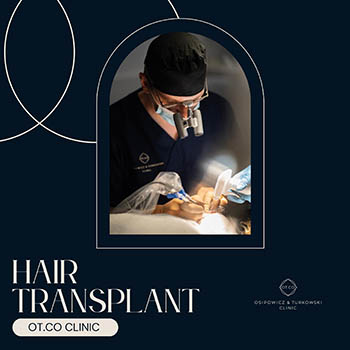TL;DR:
- Short Penile Frenulum: Causes pain, discomfort during erection or intercourse, hygiene issues, and can lead to premature ejaculation or tearing.
- Symptoms: Pain during erection/intercourse, difficulty retracting foreskin, and reduced self-esteem or intimacy issues. Often worsens over time without treatment.
- Causes: Can be congenital, due to trauma, or chronic inflammation.
- Treatment: Frenum plasty (surgical correction) under local anesthesia. Two methods: laser or scalpel. Procedure is simple, requires no hospital stay, and uses dissolvable sutures.
- Recovery: Wound heals in ~10 days, full recovery in ~1 month. Avoid sex, heavy activity for 4-5 weeks, maintain hygiene, and use gentle products. Complications are rare.
- Outcome: Resolves pain, improves hygiene, and enhances sexual comfort. Plasty is safe and effective.
Sometimes even a minor abnormality in the body can significantly reduce the comfort of life, including sexual life. One such problem is a penile frenulum that is too short, causing pain, discomfort and often even difficulty in maintaining hygiene. The solution here is penile plasty, which allows to get rid of the problem once and for all.
When is the foreskin frenulum too short?
The frenulum is a narrow band of skin that connects the glans to the foreskin, it is due to its presence that the foreskin can slide off during erection. At least, that's how it looks if the frenulum is the correct length. When it is too short, the foreskin cannot slide down, and it often happens that the glans is pulled down, causing pain. Such a condition takes away pleasure from intercourse and is sometimes the cause of premature ejaculations. A frenulum that is too short is also more likely to tear or even break completely, causing severe pain and bleeding.
What are the symptoms of a too short frenulum?
Up to the age of 3, the inability to pull back the foreskin should not cause concern – this is a physiological condition. However, if such a condition persists in an older boy, the problem begins, so you need to visit a doctor. Specjalista określi, czy przyczyną problemów jest zbyt krótkie wędzidełko, czy stulejka. The source of the problem, however, does not always go back to childhood, as it can be caused by penile trauma or chronic inflammation. Then it happens that the foreskin cannot be pulled back, although it was possible before. Symptoms of a too-short frenulum are hard to miss, because in most patients pain already appears during erection, and in all – during intercourse. It is also a common cause of premature ejaculation. Unfortunately, such problems usually have further consequences: men struggle with low self-esteem, avoid intercourse, and their relationship with their partner suffers.

How to treat a penile frenulum that is too short?
Unfortunately, many men still feel ashamed of the ailments associated with a too-short frenulum, so a visit to the doctor is still postponed. Patients are ashamed to talk about problems with intercourse, because they feel not manly enough and fall into complexes. Unfortunately, such problems will not resolve themselves, and the longer they last – the more serious they are. If the frenulum breaks off and fuses itself, it will become even shorter and the discomfort – more severe. Procedures such as penile plasty for men or labioplasty for women are still a taboo subject and a source of embarrassment for many people, and quite unnecessarily so! Intimate places, just like any other part of the body, can cause health problems that reduce the comfort of life, so with any ailment you can, and even should, see a doctor. Frenum plasty is a relatively simple procedure, which is performed under local anesthesia. As a result, it doesn't require any special preparation – if the doctor has doubts, it's usually enough for him to order a basic blood count or clotting factor test. Two methods are used here during plasty: laser or classic (scalpel and laser electrocoagulation). **The procedure involves surgical incision and suturing of the frenulum. The surgical wound is very small – it is enough to suture it with one dissolvable suture. Usually there is not even a need to stay in the hospital, you can go home immediately after the procedure. Most importantly, plasty allows you to be completely free from pain during intercourse, problems with hygiene, etc. It also significantly reduces the risk of frenulum rupture.
Rules of recovery after penile plasty
Reconvalescence after frenectomy is not too strenuous – the wound usually heals in as little as 10 days, and it takes about a month to fully recover. Often there is even no need to take medication. Rarely, there are also complications (such as erythema, exudate, swelling, etc.) – then you need to visit the doctor who performed the procedure. In some cases, the specialist will recommend taking an antibiotic, but usually there is no need. During recovery, however, it is advisable to take special care of yourself – refrain from sex and intense physical activity (preferably for at least 4-5 weeks after the procedure). This prevents excessive stretching of the healing frenulum. You also need to take special care of hygiene, but it is best to use gentle products such as gray soap. Wearing underwear made of natural materials is also helpful, as this speeds up wound healing. A too-short frenulum may seem like a trivial problem on the surface, but in reality it can significantly reduce comfort of life. However, it is worth remembering that a good plastic surgeon. OT.CO Clinic is one of the cities where there is no shortage of trusted surgeries where patients can feel free to talk about their problems. Frenectomy is a simple, short procedure that can make life a lot easier.
Conclusion
A too-short frenulum is more than a minor issue—it impacts daily life and intimacy. This condition causes pain, hygiene problems, and even emotional struggles, but it’s entirely treatable. Penile plasty is a simple, effective solution that relieves pain and restores comfort. Recovery is quick, requiring only basic care and temporary activity limits. Don’t ignore the problem or let embarrassment stop you from seeking help. Addressing it improves not just physical well-being but overall quality of life. Taking action means regaining confidence, comfort, and a more fulfilling life—no shame, just solutions.






